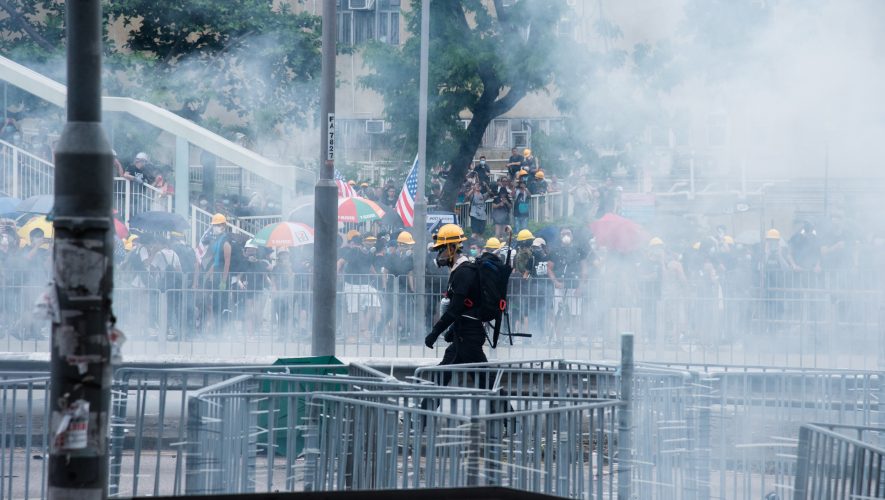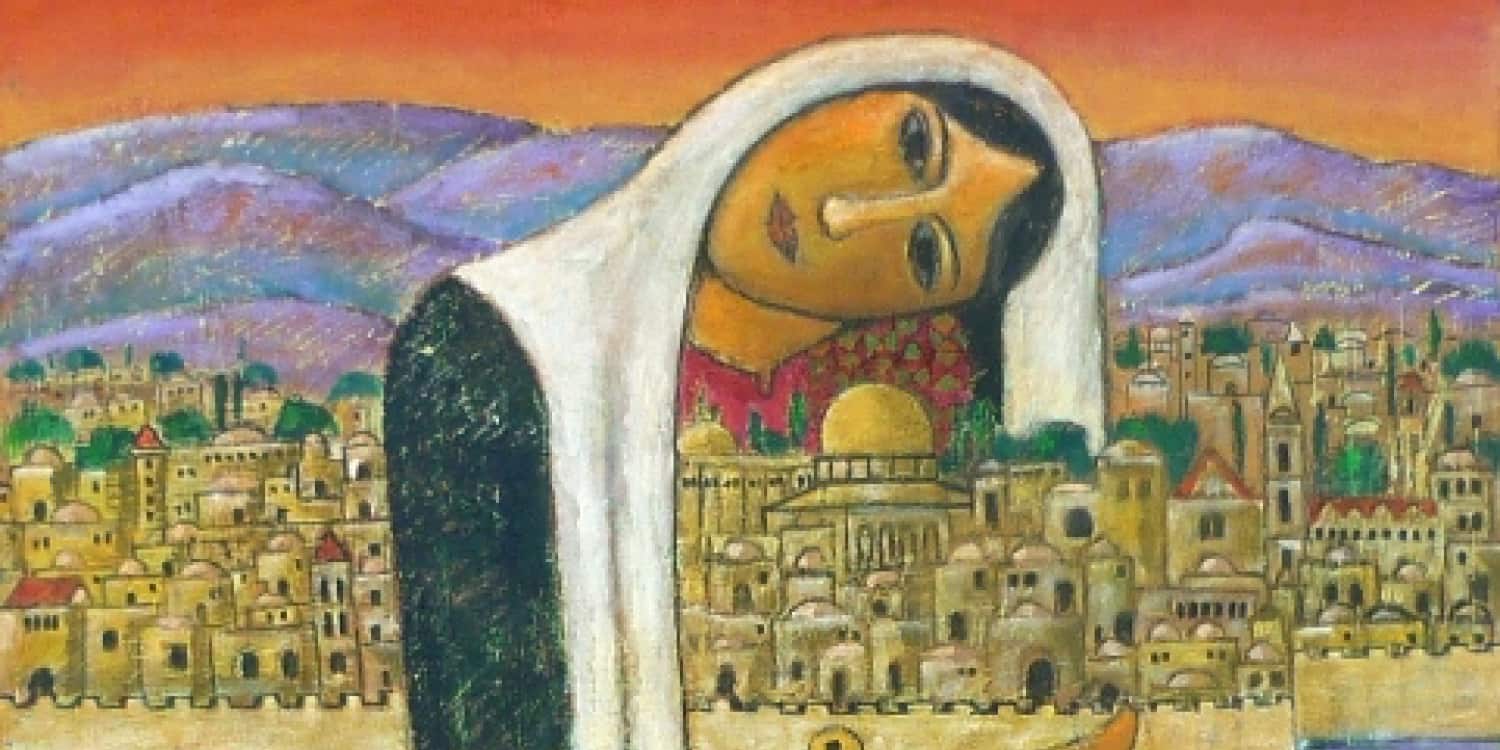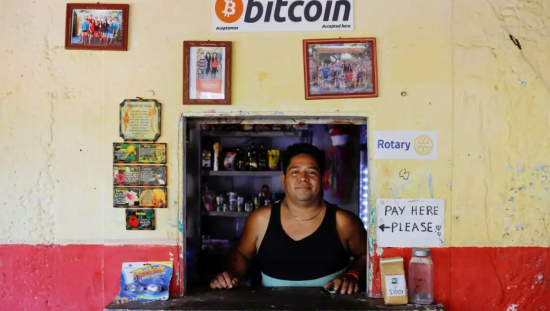Photo courtesy of Aidan Marzo
June 1989 marked a flashpoint for Hong Kong activism, when one million Cantonese people protested the massacre of pro-democracy demonstrators in Beijing’s Tiananmen Square. Many Hong Kongers continue to observe June 4th to remember those who died in the crackdown.
Martin Lee is one such observer. Lee is the founding chairman of the Democratic Party in Hong Kong and once led the Hong Kong march against military forces in Beijing. As a result, Beijing banned his travel to the mainland.
Today, Hong Kong’s pro-democratic movements are once again at odds with the Chinese government. To better understand how Beijing impedes democratic movements in Hong Kong, one must examine Article 23 of the Basic Law, Hong Kong’s constitution. In short, the language underlined in this article “equates opposing the government with opposing the country.”
Article 23, understood to be the result of Beijing’s perception that protests in Hong Kong are hostile to national security, was written to criminalize elements of Hong Kong’s free speech. Largely because of Article 23, Lee now believes that “without independence, it’s not possible for Hong Kong to continue to prosper and be stable.”
Hong Kong’s history of being a British colony set the stage for recent political strife. In 1842, Hong Kong island was ceded to Great Britain at the end of the first Opium War. Britain subsequently expanded its colony to incorporate parts of the mainland, including the New Territories, which Britain acquired in 1898 through a ninety-nine-year lease.
In 1984, British Prime Minister Margaret Thatcher and Chinese Premier Zhao Ziyang signed the Joint Declaration on the future of Hong Kong, declaring that China would resume sovereignty over Hong Kong on July 1, 1997, at the end of the New Territories lease. A key caveat stipulated that Hong Kong would retain its own form of government for fifty years, but would be ruled by Chinese sovereignty; Hong Kong would be considered a Chinese Special Administered Region, which is also referred to as “One Country, Two Systems.” This divide in government required Hong Kong to draft its own “mini-constitution.”
Hong Kong’s Basic Law was released in 1990, one year after the Tiananmen crackdown. The drafting committee did not include Martin Lee as a member, who was ousted due to his involvement with pro-democracy marches. One key change between the first draft of the Basic Law in 1988, which Lee was part of, and the final version can be found in Article 23, which states: “the Hong Kong Special Administrative Region shall enact laws on its own to prohibit any act of treason, secession, sedition, subversion against the Central People’s Government, or theft of state secrets…”
This part of the constitution has never been enforced. Technically.
An attempt was made in 2002 when the government of Hong Kong published the Consultation Document, a proposal to implement Article 23 of the Basic Law. By February 26, 2003, Hong Kong’s legislative body, Legco, introduced the National Security Bill, aimed to curtail criticism against the Central People’s Government. This bill would have weaponized Article 23’s broad language regarding subversion against the government by limiting the freedom of speech for anyone born or living in Hong Kong. Under the Consultation Document proposals, “police powers would also be expanded, enabling officers to enter and search residential buildings, confiscate materials, and make arrests at any time without a search warrant.”
Lee’s Democratic Party pushed for the withdrawal of the national security legislation, saying it lacked public support. On July 1, 2003, Lee helped organize a half-a-million-strong march. The bill was soon withdrawn.
Despite the failure to implement Article 23, pro-democracy and independence advocates have been stripped of their platform to make change. In July 2017, four of the six newly elected members belonging to the pro-democracy caucus were disqualified from Legco on the basis of Article 104 of the Basic Law, which relates to oath-taking.
Sixtus ‘Baggio’ Leung Chung-hang was elected to Legco in 2016. During his oath-taking ceremony, Leung wore a banner which read “Hong Kong is not China.” Nathan Law was twenty-three when he was elected to become Hong Kong’s youngest legislator in city history. He began his oath by stating he would “never serve a regime that murders its own people.”
Law and Leung were both disqualified from office for “intentionally read[ing] out words which do not accord with the wording of the oath prescribed by law, or tak[ing] the oath in a manner which is not sincere or not solemn.” In other words, they were disqualified for using their platform as legislators to protest China.
Law remains a Standing Committee Member of the Demosistō political party, which “[aims] to achieve democratic self-determination in Hong Kong.” Fellow party member Agnes Chow Ting was twenty-two when she decided to fill Law’s constituency seat for Hong Kong Island. However, all members of Demosistō were barred from running in elections, because Demosistō’s advocacy for self-determination is not in line with Basic Law requirements of Legco members. A court eventually overturned the ban, but because it did so for procedural and not substantive reasons, it leaves room for future courts to disqualify Chow from running again.
With limited legislative representation, pro-democracy and independence advocates took to the streets, where they were met with law enforcement. These officers have authority to limit public speech and mass demonstrations on the basis of public safety ordinances, which are used to monopolize violence in the city.
Pro-democracy and independence advocates aren’t the only ones protesting government. Recent protests stem from the Extradition Law Amendment Bill (ELAB), which was proposed in February 2019 to address a murder case. Poon Hiu-wing was arrested in Hong Kong, but could only be charged with murder in Taiwan, the location of the crime scene. In total, ELAB would have applied to thirty-seven crimes. Extradition would have ultimately been decided by or under the authority of the Chief Executive, head of the executive branch in Hong Kong. The problem is that all Chief Executive candidates are appointed by the Central People’s Government. The Taiwan murder case could have been a red herring, while the true goal of ELAB was to make the mainland criminal court the de facto artibrator for Hong Kong.
An estimated one million people marched in peaceful protest against ELAB. Initial marches were followed by a series of escalating protests, which culminated in over nine-hundred arrests justified by public safety ordinances.
Specifically, on June 12, forty-four protesters were charged with rioting, the first charges of rioting since Hong Kong was handed over to China in 1997. Rioting is defined by Legco as an unlawful assembly of three or more people where any person “commits a breach of the peace,” and a conviction can carry a ten-year prison sentence.
Another concern is police handling of unlawful assembly. Police violence against protests is often viewed as excessive use of force. In one instance, an 18-year-old was shot with a live round.
Additionally Carrie Lam, the Chief Executive of Hong Kong, banned face masks via the Emergency Regulations Ordinance. Demonstrators regularly started wearing face masks after the police began using tear gas in large volume. This new regulation is seen as an affront to civil freedoms, and the protesters by-in-large are not complying. They chant “we have the right to wear face masks.”
All three instances of police-protester conflict have created desperation. Protesters increasingly support radical protest tactics, and have asked the international community to condemn human rights abuses, but also to support more specific goals.
The Hong Kong protesters issued five major demands: complete withdrawal of ELAB; withdrawal of the “riot” characterization describing the June 12 protest; the release of arrested protesters without charge; formation of an independent commission of inquiry to police brutality; and universal suffrage.
On September 4, Chief Executive Carrie Lam met the first demand by withdrawing the controversial extradition bill. However, this has not stopped mass demonstrations. A reactionary protest slogan calls for all “5 demands, not one less.” However, protesters continue to face difficulty in having their demands met, considering the outcome of Hong Kong’s demonstrations are vital to the legitimacy of the Central People’s Government.
To illustrate why China is so invested in the Hong Kong protests, we must examine a Confucian principle: tianxia (all under one heaven), which is China’s prevailing national security ideology. In President Xi’s words, “government, military, society and schools; north, south, east and west – the party leads them all.” Because the Chinese Communist Party and China are so tightly linked, many believe that a decline in Party legitimacy could end China’s control over all special administrative regions.
Perhaps as a response to the challenge posed by mass protests, the People’s Liberation Army (PLA), China’s armed forces, released military training videos showing troops simulating Hong Kong-specific riot control tactics. On August 29, the Hong Kong Garrison of the Chinese People’s Liberation Army conducted the twenty-second rotation of its members. Around 6,000 PLA personnel have continuously garrisoned Hong Kong since 1997. While Chinese state press (Xinhua) claims that the twenty-second rotation was a routine, pundits were skeptical of the PLA’s intentions. Some point to a change in the garrison’s armored vehicles to models used by police for anti-riot purposes as proof of the PLA’s preparations to intervene. The combination of training exercises, equipment change, and troop rotations all seem to be China’s way of showing off its military prowess.
October 1, 2019, marked the seventieth anniversary of Communist Party rule—National Day of the People’s Republic of China. Pro-democracy advocates used this day to protest, and violence escalated to higher levels than ever before. Yet, the PLA did not intervene.
Carrie Lam claimed that “Xi Jinping has absolutely no plan to send in the PLA,” and “Beijing has no deadline [to conclude the Hong Kong protests].” We will see if Lam’s comments remain true.
Meanwhile, it is equally important to analyze the legal battles for freedom of speech and independence. Modern China has a complicated history of confrontation with pro-democracy student demonstrations. Today’s fight for democracy is similar to 1989—another challenge to the legitimacy of Party rule.
However, Hong Kong is not 1989 Tiananmen Square. For the past thirty years, China has stifled Hong Kong’s ability to speak freely. Article 23 equates opposition to the Central People’s Government with opposition to the country, Article 104 disqualified four pro-democracy legislators from taking office, and public safety ordinances criminalize particular protest tactics. Now, with the laws stacked against government critics, one has to wonder how “free” Hong Kong’s freedom of speech really is.



